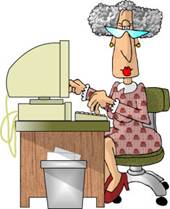After mass, Kuya went to the appliance store for a new fan, and we found that the appliance store is full of airconditioners for folks to buy. The prices are going down. Here, we call them "air con", and the prices start at 150 dollars. Price list.
No, the poor, whose minimum wage is 6 USD a day, can't afford them yet, but they are being snapped up by the growing middle class (and the poor who are sent money by their family members working in Manila or overseas might be able to afford them too).
Asia is now in an Aircon boom: not good news for the "greens" or the Pope. but good news for grandmom and for people who work in hot offices.
So why are people using aircons now? Why not go back to the good old days? Urbanization is one reason. Yes, it is cooler in your grass thatched bamboo hut in the midst of your rice paddy than in your condo in Makati, but things have changed in the last fifty years.
And an analysis of flawed study of "deaths" after the Puerto Rico hurricane will give you another idea: heat kills.
Deep in the WaPost article analyzing the flaws in a "study" showing a huge death rate after the hurricane in Puerto Rico: deep inside the article you find this:
Deep in the WaPost article analyzing the flaws in a "study" showing a huge death rate after the hurricane in Puerto Rico: deep inside the article you find this:
Italics mine.
“With the power outage following the hurricane, residents in ill health and near death died prematurely for lack of access to life-sustaining services like respirators, dialysis and air conditioning,” he said. “These deaths were principally attributable to an extended loss of power.
Here in the Philippines, we see these deaths in the "tagInit", i.e. hot season: Those with high blood pressure have strokes, the elderly and children die of dehydration from diarrhea, and some from heat stress and heat exhaustion.
when we moved here 12 years ago, our generator had died, and I suffered greatly so I bought a small generator for us to run our airconditioner. (long story). Why did we need a generator? The Philippines tends to be green, and so we get electricity from hydo electric power... in hot season, the water level and electricity generation goes down but the use of fans and airconditioners goes up... so we had lots of "rolling brownouts" to cope with.
Things are now improving, by the way, but you can see the problem.
After the hurricane in Puerto Rico (and I suspect in a lot of the nearby islands too) a lot of the deaths were premature deaths of the medically frail from heat etc. in the aftermath, not from the hurricane itself. (read this VOA article about corruption and incompetence that had allowed the electric grid to decay and be vulnerable to collapse, and after the hurricane, how corruption and/or incompetence caused delays in restoring electricity to rural areas).
But I also wonder about how the "experts" phrased the question: Puerto Rico has extended families, (which might include grandmother, aunts, and cousins in the "household") so were their numbers calculated as if they were an American nuclear family? Also, remember: Like here, many of the young and healthy members had migrated for jobs, so the elderly and sick might be over represented in the survey.
again this fact is confirmed in that WAPO article:
On the other hand, most of these people were under the care of family or professional staff, and their deaths were recorded in near real time. Virtually all those who died in 2017 have been properly accounted for. There are materially no missing bodies.”
After our typhoon a couple years ago, we lost power for two weeks and the water supply for ten days. (we had generators and our own well, so were okay and able to supply our neighbors and relatives with drinking water and so they could recharge their cellphones for free).
something to remember: The family is the first line of help in most countries.
my son lost electricity after they had a hurricane in Florida. Right now, they are doing respite care for the mother of an inlaw who is on dialysis. But when the hurricane hit last year, her son had to evacuate inland so her dialysis was not interupted, but my son stayed and managed despite minor flooding in his house.
He needs to buy a generator, or at least a power converter for his car, but never mind. He will cope.

No comments:
Post a Comment